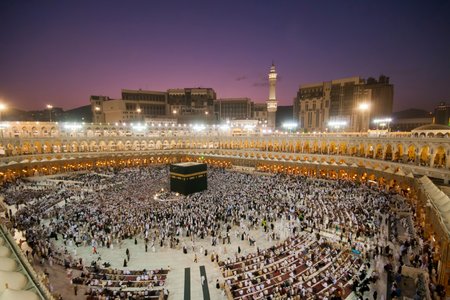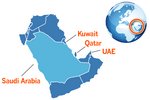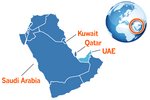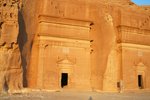About Saudi Arabia
Saudi Arabia is a country of contrasts, embracing the modern world in the latest architecture, healthcare and economic development, but still respectful of its cultural and religious roots.
So how do we describe what a person will find in Saudi Arabia? Mostly it will be an intense learning experience on many fronts: the diseases may be different, the patients come from a different culture, your colleagues are from all over the world, not everyone speaks English, you work with staff who do the same work and have the same credentials as you but are paid less than you because they come from a country in which salaries are much lower. You will have a lot of free time on your hands therefore you will beef up your tennis game, learn to play bridge, participate in the local theatre group, or join a music ensemble. You have to be constantly open to new ideas, to new people and to different ways of doing things. Over and over people tell us about how everything is new and different, and how this energizes them.
Basics
- Size: About 1/3 the size of the USA (757,000 square miles)
- Capital City: Riyadh (where we have many positions)
- Population: approximately 34 million, of which an estimated 38% are non-nationals (2020 est.)
- Government Type: Monarchy
- Language: Arabic, though English is the working language of the hospitals
- Currency: the Saudi Riyal (SR), which is tied to the US dollar at a rate of US$1=3.75SR
Religion
Sunni Islam is the majority religion.
The basic practice of Islam involves the Five Pillars of Islam, which include:
- praying five times daily (at dawn, midday, mid-afternoon, sunset, and nightfall), which can last up to a half an hour; during prayer time, shops and restaurants close;
- almsgiving;
- fasting from dawn to dusk, during the holy month of Ramadan;
- pilgrimage to Mecca, or hajj, which must be done once in a lifetime by those who are fit enough, and financially able, to perform it.
The Islamic, or Hejira Calendar
Saudi Arabia follows the Islamic, or Hejira calendar, which is 11 days shorter than the Western Gregorian calendar.
Role of Women
The role of women in Saudi culture has changed significantly over the past 30 years.
Saudi women have equal access to education, and 51% of college graduates are female. Saudi women now hold positions in healthcare, teaching, banking, journalism, and as entrepreneurs in start-up businesses.
And women are getting into government. In 2015 municipal elections, 17 women women were elected to public office.
Women have been driving in Saudi Arabia since June 2018.
Employment
The economic boom in Saudi Arabia started in the 1970s, after oil prices skyrocketed. Because Saudi Arabia did not have sufficient qualified staff to fill the many positions in healthcare, oil, telecommunications, finance, construction, etc., the country had to depend on international companies to develop its industries and services, and an international workforce to fill the thousands of positions.
Although many of the positions (particularly the senior management and professional positions) are now held by Saudi men and women, in 2016, expatriates constituted approximately 30% of the country’s population.
Education
The number of educational institutions has grown at a phenomenal rate. In 1980, there were two medical schools in Saudi Arabia: one in Riyadh and one in Jeddah, in 2014, there were more than 90 universities, colleges, and technical/vocational institutes in the Kingdom, and in 2014, the Kingdom had 21 medical schools.
Arts & Literature
The Koran says that artistic representations should not be made of people or animals. As a result, you will find unique designs on textiles, architecture, utensils, and weapons. Particularly striking are the individualistic designs of doors of traditional private houses. Expatriates who lived in Saudi Arabia during the 1980s collected the doors that had been discarded from wonderful old mud houses, which were being replaced by modern homes.
There is a strong tradition of reciting poems and stories with historical significance. If you ever have an invitation to hear one of these recitations, take it.
Instrumental music has been rare, but singing and chanting are popular.
And things are changing: In October 2016, the General Authority for Entertainment (GAE) was created by Royal Decree, and it was announced that the group would begin organizing festivals, concerts, a Comic-Con, a visit by world-renowned Cirque du Soleil, and more.
Climate & Topography
Riyadh, in the center of the desert kingdom, experiences very hot, dry summers (90-140F (32-57C)), and cool winters (40/50F (7/12C)) with little rain. Jeddah on the west coast, and Dhahran on the east coast, are both very hot and humid in the summer, and though slightly cooler, still very humid in the winter.
Would you like information about working in Saudi Arabia?
See our Frequently Asked Questions page.








